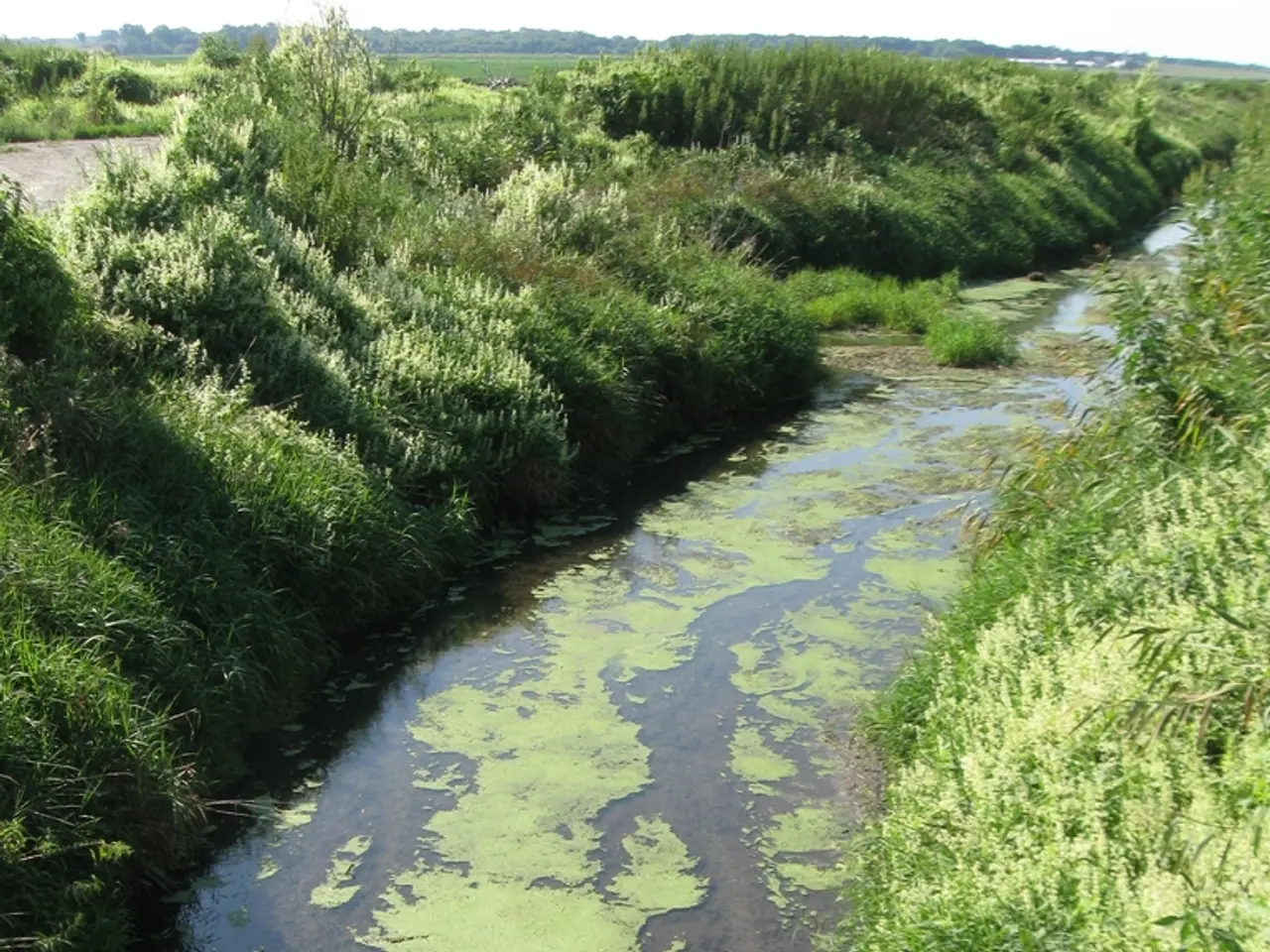Old e-mails are being requested to be deleted by individuals, owing to the ongoing drought situation.
The UK's Environment Agency has taken proactive steps to address a significant future shortfall in water supply, projected to reach 5 billion litres per day by 2055. In response, the agency has introduced a range of unconventional water-saving measures aimed at tightening abstraction licensing, promoting water reuse and recycling, and increasing scrutiny of industrial water use.
In regions affected by drought, such as Yorkshire, garden hosepipe bans have been imposed due to water restrictions. Moreover, six other regions in England are experiencing persistent dry weather, making the situation increasingly critical. This drought has led to England experiencing the driest half-year since 1976.
To combat this scarcity, the agency is urging citizens to adopt a series of practical measures. For instance, turning off the tap while brushing teeth or shaving, taking shorter showers, and fixing leaky toilets are all recommended. Additionally, citizens are advised to delete old emails and images from their devices to save water.
Large consumers of water, such as data centres, are being encouraged to optimize their water use through upgraded systems, recycling, and smart metering. The agency is also developing new infrastructure projects, including reservoirs, water transfer schemes, desalination, and minewater treatment, to increase supply resilience.
The strategy recognizes the urgent need to reduce water demand and improve water use efficiency across sectors. By requiring industries to demonstrate optimization and transparently report water use, it creates accountability that was lacking previously. Large-scale infrastructure investments backed by regulatory support aim to safeguard long-term supply stability and ecological health, which is crucial given climate change and population growth pressures.
However, some environmental groups have expressed concern that current metrics focus more on activity delivery rather than direct environmental outcomes. This indicates a potential area for improvement in measuring the effectiveness of these measures.
Despite these challenges, the Environment Agency is actively promoting water-saving at the household level with simple, practical advice to reduce water footprint collectively. The UK's water-saving strategy under the Environment Agency's guidance is distinguished by its comprehensive and integrated approach combining regulatory tightening, infrastructure expansion, real-time resource management, and stakeholder engagement. While these are promising steps toward sustainable water management, ongoing evaluation will be needed to assess direct environmental benefits and adapt policies accordingly.
- The environmental-science field has become increasingly important in addressing the water crisis, as the UK's Environment Agency is developing new climate-change mitigation strategies, such as reservoirs, water transfer schemes, desalination, and minewater treatment, to boost supply resilience.
- As the severity of the water scarcity situation escalates, data-and-cloud-computing technology is being harnessed to enhance water management efficiency in large industries, encouraging them to optimize water use through upgraded systems, recycling, and smart metering.
- While personal water-saving efforts should not be overlooked, a significant shift in focus towards understanding and quantifying the direct environmental outcomes of water-saving measures is necessary for the UK's water-saving strategy to achieve its long-term goals in mitigating climate change and population pressure impacts on the environment.




